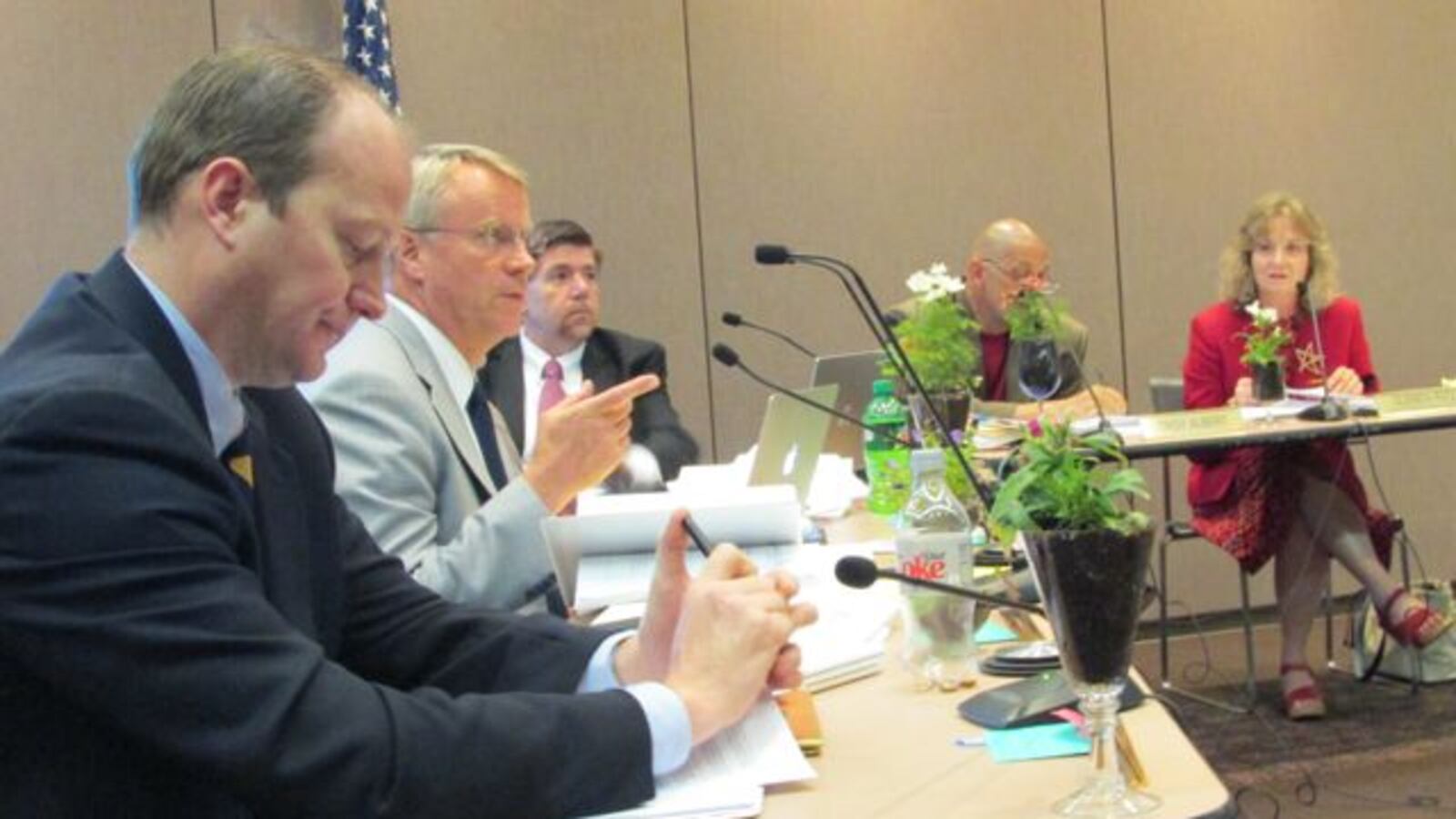A Marion County judge thinks a complaint that the Indiana State Board of Education broke the law last fall when it had discussions over email without state Superintendent Glenda Ritz merits further discussion.
Judge Cynthia Ayers ruled against the state board’s request to dismiss a December lawsuit brought by four Indiana citizens including retired Lafayette schools superintendent Ed Eiler, clearing the way for their attorney to review internal documents for evidence to support their case for a possible trial.
Attorney William Groth had said after a June 23 hearing in the case he was hopeful but cautious about his clients’ chances for the case to continue. The ruling was a big victory for the case and a possible route to addressing what some critics argue is a weakness in the state open meetings law that aims to assure public boards do their business in public.
“We’re very pleased with the court’s ruling,” said attorney William Groth, who represents Eiler and the others. “We think it was the correct ruling and we believe all along that in order to establish whether or not the law was violated, we need to have discovery and we need to get access to emails that were sent and received among the members of the board … so we know exactly what happened. After all that discovery is completed, I think we’ll have a clearer picture as to whether or not the (law) was violated.”
At issue is whether the law allowed 10 state board members, who have been at odds with Ritz since she was elected to the statewide office in 2012, to legally decide through an email conversation last October to send a joint letter urging state legislative leaders to intervene in Indiana’s school accountability process.
The state board members felt Ritz was intentionally delaying releasing A to F school accountability grades, which came out more than a month later last year than they did in 2012. Ritz argued the grades were delayed because of problems with online ISTEP testing.
Ayers ruled that the state board’s assertion that the emails did not constitute a meeting could not be judged without a full examination of the facts of the case. Groth said he has again asked Attorney General Greg Zoeller’s office to turn over documents he first asked for five months ago.
“There is no Indiana case law on whether electronic communications fall within the meaning of the word ‘meeting,'” Ayers wrote in the ruling. “Therefore, in order for the court to properly determine this issue while liberally construing the provisions of the (law), a full examination of the facts and circumstances of the events in question is necessary.”
State officials said they would comply with the ruling.
“The Open Door Law is an important protection for Hoosiers; and in this lawsuit brought against the state by private plaintiffs’ lawyers, the state will review the trial court’s ruling and determine the next steps to take in court by the appropriate deadlines,” said Bryan Corbin, spokesman for the state attorney general’s office.
Ritz first sued the board over the email conversations last October but her suit was thrown out by a judge who said she didn’t have the authority to sue the state. Four Indiana education advocates filed the identical suit in December.


